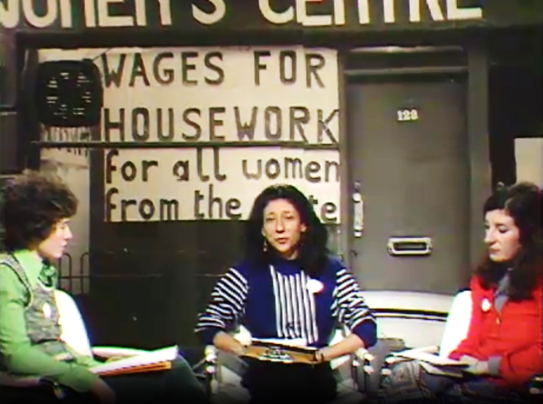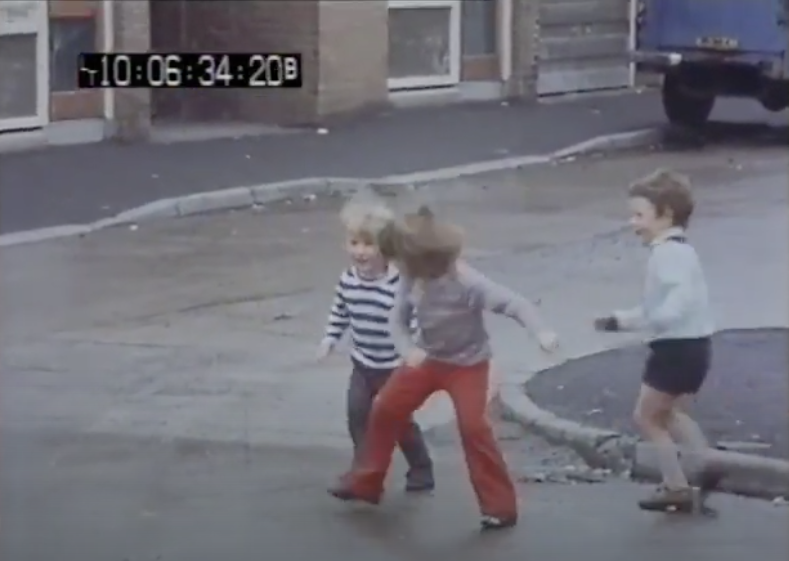Press release: Wages for Housework film All Work and No Pay at Tate Exhibition Women in Revolt.
The Wages for Housework film All Work and No Pay is part of the major Tate Britain exhibition Women in Revolt which opens tomorrow 8 November 2022 and runs until April 2024.
The film was made by the Wages for Housework Campaign (WFH) with the BBC community access unit Open Door in 1975. It provided much-needed airtime for the demand for wages for housework which Selma James had first put forward at the 1972 Women’s Liberation Conference in Manchester.
James, who will be attending today’s private viewing of Women in Revolt with some of her colleagues, says:
“We are delighted that our film and the movement it documents are again available to the public. Half a century ago, grassroots women came out with many truths as we got together to build our collective power. We women were determined to change the world from the bottom up and we are even more determined now.”
The film shows meetings and interviews with women of different races, ages and nationalities sharing their experiences and developing campaign strategies. Decades before the #MeToo movement, domestic violence survivors, a lesbian waitress and a Black nurse discuss women’s poverty and financial dependence on men. It glimpses women’s organising across the divide in the North of Ireland during the Troubles and in Italy, and the first Iceland women’s general strike of 1975, when full-time housewives and women working outside the home took to the streets together and brought the country to a halt – the strike was repeated last month on 24 October. The film includes original WFH songs from Canada and Italy.
All Work and No Pay was shown earlier this year at the Raven Row exhibition People Make Television to much acclaim. The exhibition celebrated the extraordinary work of the Open Door series which put BBC facilities at the disposal of grassroots people to express their rich and varied perspectives in their own way.The multiracial women’s centre featured in the film, now the Crossroads Women’s Centre in Kentish Town, London, provides vital services for women in the community as well as internationally to this day. The Wages for Housework Campaign and the Global Women’s Strike it co-ordinates and a dozen other groups are based there. The archives of the WFH Campaign (1972-2022) are in the Bishopsgate Institute and also at the women’s centre.


